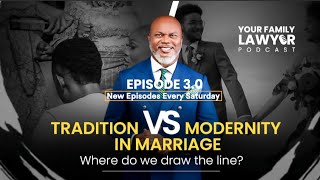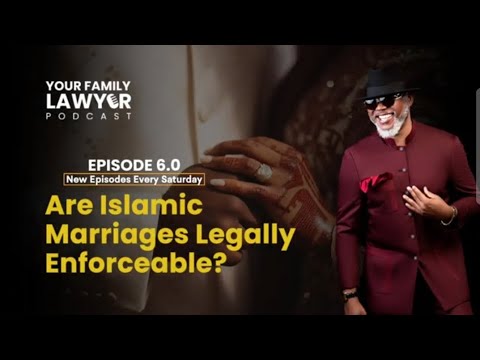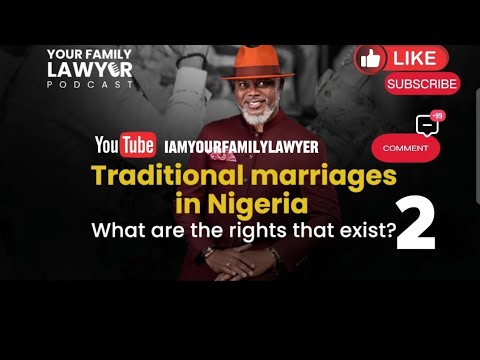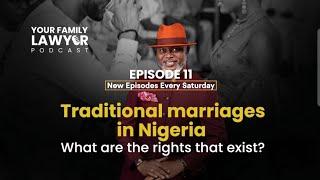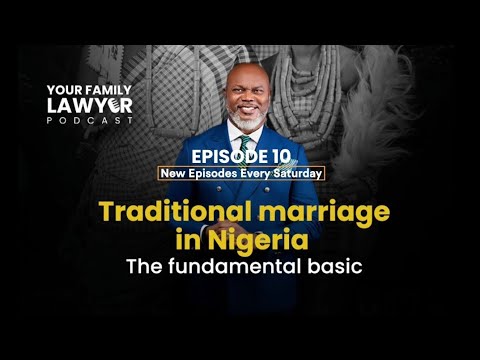Marriage under the Marriage Act (White Wedding) – Part 2: Historical Origins and Colonial Influence
Welcome back to Your Family Lawyer, the platform where we break down the legal side of family life in a way that’s easy to digest and even add a little fun. Today’s burning question: How did colonial influence shape our current marriage laws, and what happens when tradition clashes with modern legal frameworks? Buckle up, because we’re continuing our deep dive into marriage under the Marriage Act with a splash of history and a dash of courtroom drama.
We’ll explore a jaw-dropping case that highlights the shift from traditional to civil marriages and wrap up with how colonial rules still impact our lives today.”
Segment 1: The Historical Origins of Marriage Under the Marriage Act
“Alright, let’s travel back in time. Before the British showed up, the diverse peoples of the numerous tribes and nations within the territory now known as Nigeria, conducted marriages according to their native laws and customs. Traditional rites, and ceremonies varied from tribe to tribe and so did inheritance laws. Enter the British, who brought with them the Marriage Act. They were like, ‘hey, we have this superior law on how to get married. It will become the Law of the land and marriages will be monogamous and state approved.’
The Marriage Act (CAP M6, Laws of the Federation of Nigeria) copied the British Marriage Act of 1836, making marriages official with public ceremonies, licensed venues, and witnesses. This was a radical shift from the traditional Nigerian way, where marriage was a community affair, not a state matter.”
Segment 2: Colonial Influence on Civil Marriages in Nigeria
“Now, let’s talk about how the British really shook things up. They said, ‘One man, one wife only, folks!’ Before this, many Nigerian communities, especially under Islamic or customary law, allowed men to have multiple wives. This new concept alongside many other British tenets were imposed as a wholesome legal system particularly, in southern Nigeria infused with christian doctrines that were deployed to reinforce monogamy. Today, marrying a second wife after a marriage under the Act, is an aberration and indeed a criminal offence called bigamy.
Section 33 of the Marriage Act made it clear: once you marry someone under this Act, you can’t go off and marry someone else. It’s illegal and a crime called bigamy.”
Segment 3: Case Study – Anionwu & Anor v Anionwu & Anor
“Ready for some drama? Here’s a real-life case that shows what happens when tradition and modern law collide: Anionwu & Anor v Anionwu & Anor. Picture this: a woman claims to have married a man… after he died. Let’s see how that plays out.”
Screenplay
INT. FAMILY LIVING ROOM – DAY
MRS. NNEKA UDENSI, a woman in her early forties, sits nervously on the couch. Across from her sits MRS. SCHOLASTICA ANIONWU, an elderly woman with a stern expression, accompanied by her LAWYER. The room is filled with tension.
MRS. SCHOLASTICA ANIONWU
(Resolute)
Nneka, this so-called marriage cannot stand. Lawrence has been gone since 1980. How can you claim to have married a dead man?
MRS. NNEKA UDENSI
(Defensive)
We followed Onitsha Custom! I loved him, and this was the way to honor our relationship.
LAWYER
(Interjecting)
Mrs. Udensi, under both Onitsha Custom and English Law, this marriage is invalid. It’s against public policy, good conscience, and natural justice.
CUT TO: INT. COURTROOM – DAY
The JUDGE, an elderly man with glasses, sits at the bench. MRS. NNEKA UDENSI is at the stand, looking both anxious and determined.
Note: Ugochi, please replace this case with one of the more appropriate ones sent to you.
JUDGE
(Firmly)
Mrs. Udensi, can you explain to this court how you believe this marriage is valid?
MRS. NNEKA UDENSI
(Pleading)
My Lord, we performed the rites according to Onitsha Custom. It is very common and in accordance with tradition. It was my way of honoring him.
INT. COURTROOM – DAY (LATER)
The JUDGE addresses the court, looking at both parties.
JUDGE
After considering all the evidence and the arguments presented, this court finds that the marriage between Mrs. Nneka Udensi and the late Ambassador Lawrence Odiatu Victor Anionwu is null and void. The courtroom murmurs with hushed conversations.
INT. COURTROOM – DAY (FLASHBACK)
Images of traditional Onitsha wedding customs. MRS. NNEKA UDENSI participating in the rites, feeling emotional.
INT. COURTROOM – DAY (PRESENT)
The JUDGE continues his verdict.
JUDGE
This marriage violates public policy and natural justice. It is legally impossible to contract a marriage after the death of one of the parties. Therefore, it cannot be recognized under Nigerian law.
INT. FAMILY LIVING ROOM – DAY
MRS. NNEKA UDENSI sits quietly, reflecting on the judge’s decision. MRS. SCHOLASTICA ANIONWU and her LAWYER pack up their documents, ready to leave.
MRS. SCHOLASTICA ANIONWU
(Softening a bit)
Nneka, this was never about you. It’s about following the law.
Narrator:
“The case of Anionwu & Anor v. Anionwu & Anor is an odd case of a tale of love, native customs, and the law colliding in a manner that reminds us that not every tradition aligns with modern legal systems.”
Segment 4: Legal Implications – The Colonial Legacy in Today’s Marriage Laws
“So, how does this colonial legacy affect marriage laws today? The Marriage Act is still the standard for civil marriages in Nigeria. It’s indeed the gold standard, especially when it comes to things like inheritance, property rights, and divorce, in Southern Nigeria.
But here’s the kicker: if you’re married under customary law and want to marry another person in a statutory marriage, you’ve got to dissolve the customary marriage first.
These colonial-era rules still shape our legal landscape today.”
“So, in a nutshell, the Marriage Act we have today is all thanks to our colonial history. It brought in the rules about monogamy, formal registration, and le legal recognition rules that are still pretty powerful today.
If you’re thinking about getting hitched under the Marriage Act or have questions about your rights, it’s a good idea to get some legal advice. If for some reason, one woman will not be enough for you, please marry your first wife under native law and custom or islamic law. If you choose however, to marry under the Act like I did, then it is “for better for worse”… Till death or divorce. This will be all for today’s episode of Your Family Lawyer. Join us next week when we will discuss the legal implications of marriage under the Marriage Act.” Until then, stay informed and be empowered. And please be good to your family!”. My name is Chuma Chinye, and I am Your Family Lawyer.

